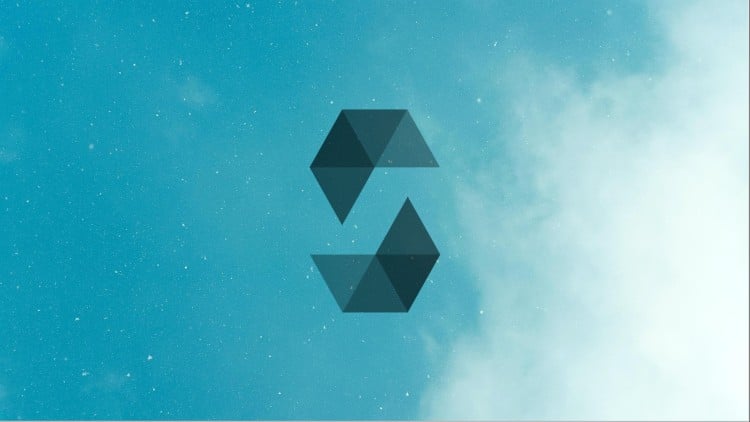
A Practical Developer Guide
⏱️ Length: 36.6 total hours
⭐ 4.46/5 rating
👥 24,855 students
🔄 June 2025 update
Add-On Information:
Note➛ Make sure your 𝐔𝐝𝐞𝐦𝐲 cart has only this course you're going to enroll it now, Remove all other courses from the 𝐔𝐝𝐞𝐦𝐲 cart before Enrolling!
-
Course Overview
- This practical developer guide empowers programmers to dive deep into decentralized application (dApp) development on Ethereum, transforming web2 understanding into robust web3 engineering.
- Unpack foundational blockchain principles within the Ethereum ecosystem, laying groundwork for secure, scalable smart contracts.
- Navigate the complete smart contract lifecycle, from design and secure coding to testing, deployment, and seamless UI interaction.
- Embrace a hands-on approach emphasizing practical application, gaining tangible skills to build real-world blockchain solutions.
- Master Solidity, the essential language for creating programmable, trustless agreements powering the decentralized internet.
- Benefit from up-to-date content, reflecting the latest best practices and tools in the fast-evolving blockchain development landscape, as of its June 2025 update.
-
Requirements / Prerequisites
- A foundational grasp of programming concepts (variables, data types, control structures, functions), ideally with JavaScript or a similar C-style language.
- Familiarity with command-line interface (CLI) for executing scripts and managing development environments.
- Comfort with basic web development concepts (HTML, CSS) for integrating smart contracts with user-facing applications.
- A curious mind, strong desire to learn cutting-edge technology, and patience for debugging complex distributed systems.
- A stable internet connection and a computer capable of running modern development tools and a local Ethereum node (e.g., sufficient RAM, processing power).
-
Skills Covered / Tools Used
- Solidity Deep Dive: Master advanced Solidity syntax, data structures (mappings, structs), function modifiers, events, error handling, and object-oriented principles (inheritance) for sophisticated smart contracts.
- EVM Architecture Comprehension: Understand how the Ethereum Virtual Machine (EVM) executes Solidity bytecode, including gas costs, storage, and transaction flow.
- Comprehensive Testing Strategies: Implement robust unit and integration testing using Hardhat’s suite, Chai, Waffle, and mock contracts for reliability and security.
- Deployment & Network Interaction: Deploy smart contracts to various Ethereum networks (local, testnets, mainnet considerations) and manage contract addresses and ABIs.
- Full-Stack dApp Development: Integrate deployed smart contracts with frontend JavaScript applications, facilitating seamless user interaction with blockchain logic.
- Wallet Integration Patterns: Develop UIs securely connecting with browser-based (MetaMask) and mobile (WalletConnect) wallets for transaction signing and account management.
- Security Best Practices: Identify and mitigate common smart contract vulnerabilities (reentrancy, integer overflows, access control) using industry-standard patterns and audits.
- Gas Optimization Techniques: Write efficient Solidity code to minimize transaction costs on Ethereum, understanding data storage and computation implications.
- Event-Driven Development: Utilize Solidity events for logging and building off-chain data indexing solutions, enhancing dApp responsiveness and user experience.
- Contract Upgradability: Explore patterns and proxy contracts for making smart contracts upgradable, addressing blockchain deployment immutability.
- Modular Development: Practice writing modular, reusable Solidity code using libraries and abstract contracts for maintainable, scalable dApps.
-
Benefits / Outcomes
- Forge a strong foundation for a career as a blockchain developer, smart contract auditor, or dApp architect in the expanding web3 industry.
- Acquire expertise to conceptualize, design, and implement your own dApps, from utility tokens to complex DeFi protocols or NFT marketplaces.
- Develop critical understanding of blockchain security, enabling you to identify vulnerabilities and implement robust safeguards in smart contract deployments.
- Gain confidence to contribute to open-source blockchain projects, participate in developer communities, and stay current with Ethereum ecosystem developments.
- Unlock opportunities in decentralized finance (DeFi), non-fungible tokens (NFTs), and decentralized autonomous organizations (DAOs) within emerging web3 paradigms.
- Build a comprehensive portfolio of practical Solidity projects, demonstrating capabilities to potential employers.
-
PROS of this Course
- Current and Relevant: The “June 2025 update” ensures highly current material, covering the latest Solidity versions, tooling, and best practices in a fast-evolving ecosystem.
- Highly Rated by Peers: A 4.46/5 rating from 24,855 students indicates a widely recognized and well-received learning experience.
- Extensive Practical Exposure: Described as a “Practical Developer Guide” with 36.6 hours, suggesting deep hands-on coding and real-world project development.
- Large, Engaged Community: 24,855 students imply a vibrant learning community with readily available peer support.
- Career-Oriented Skill Development: Delivers actionable skills directly applicable to becoming a proficient blockchain developer.
- Comprehensive Tooling Coverage: Integrates industry-standard tools like Hardhat, Remix, Ethers.js, and Web3.js, offering a holistic developer ecosystem view.
-
CONS of this Course
- The fast-paced nature of blockchain development means continuous learning and staying updated with new protocols and security paradigms will always be essential beyond the course material.
Learning Tracks: English,Development,Programming Languages
Found It Free? Share It Fast!